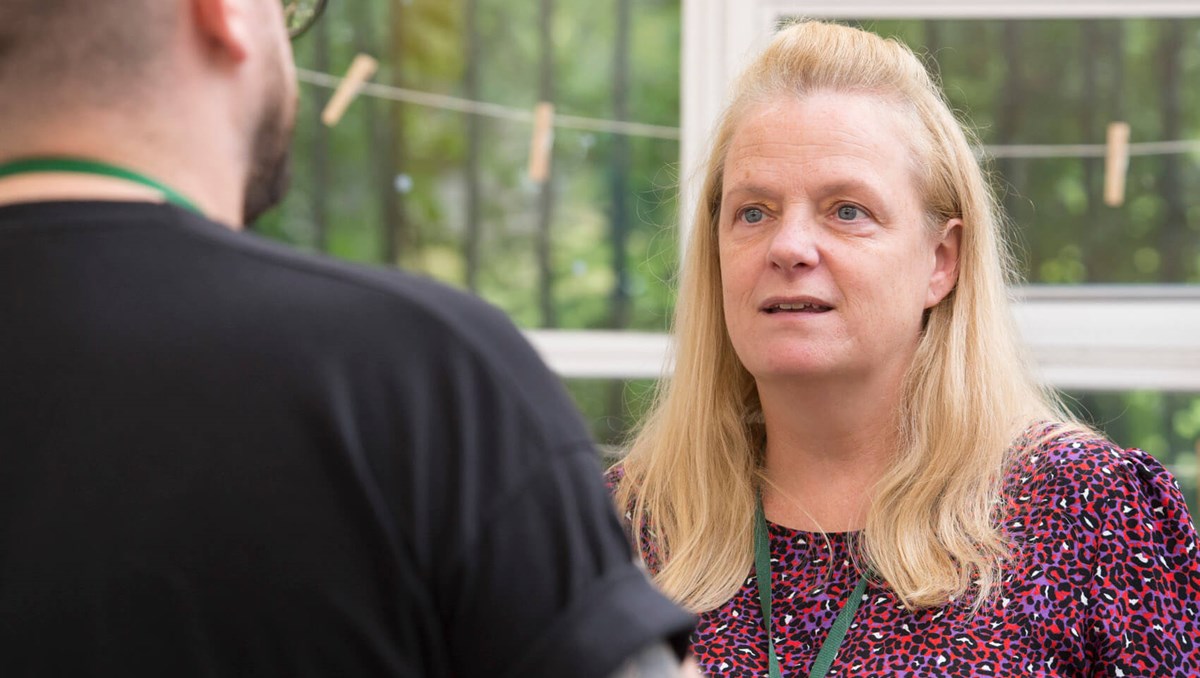Are we able to overcome comparison? Practical tips for leaders
In this article, Emily Armstrong, education coach and recent primary headteacher, shares her tips for reframing and overcoming comparison to help leaders maintain their wellbeing this school year.
Articles / 6 mins read

As leaders, coping with the pressure to perform on a daily basis can be challenging. From learning walks to parents’ evenings, assessments to Ofsted inspections, many aspects of our roles cause us to continuously reflect on both our strengths and our areas for development. We are not lone workers however, and while being part of a team has many benefits for our mental wellbeing, it is natural to make comparisons between our own performance and that of our colleagues. This can often exacerbate feelings of guilt or inadequacy, leading to us placing unrealistic pressure on ourselves to work harder, do ‘better’ and achieve more.
It is important to remember that comparison is a natural human response to the pressures that exist when under constant demands to perform. It is not realistic to (nor would we necessarily want to) try to eliminate comparison, however it is possible to overcome the negative effects that may accompany these thought processes.
As a primary school headteacher myself, I experienced many challenging emotions that were triggered by comparison at the beginning of my headship. I was not prepared for the feelings of inadequacy that I would feel when hearing about the successes of other schools and senior leaders in my community. By utilising many of the strategies below however, and reaching out for support, I was able to reframe comparison and now approach this natural process with self-compassion and pragmatism.
Fostering a culture of support
Fostering a culture of support and growth in schools can be extremely beneficial in reducing comparison and competition for members of a school community. For school leaders, modelling desired behaviours is vital to ensure that all staff feel valued, supported and equal. This means complimenting all staff on their successes as much as possible, and ensuring that language used in staff meetings and emails does not promote comparison (e.g comparing results with other schools).
Celebrating growth and development over time, as opposed to one off results, is also essential. Removing judgement language from monitoring and performance management and instead involving colleagues in their own development trajectory, can be the difference between staff living in fear of comparison and thriving on intrinsic motivation. Introducing initiatives such as staff recognition boards can also be helpful in allowing all staff to feel appreciated, however it is important that this allows anyone to nominate and be nominated, as opposed to being controlled by the leadership of the school.
Practical tips for reframing and overcoming comparison
1.
Identify comparison and its associated feelings
When you find yourself comparing yourself to others, acknowledge this and remind yourself that this is a natural human process. Saying out loud, ‘I’m comparing myself here and that’s okay’ can help to normalise comparison and enable you to quickly recognise any difficult feelings or behaviours associated with these thought patterns.
2.
Practise positive self-talk
When difficult feelings around comparisons creep in, ensure that you are telling your brain what it needs to hear to overcome these (even if you do not yet believe it fully). For example, if you catch yourself thinking ‘They are a far better teacher than me’ try reframing this with a phrase like, ‘We are both different teachers and each have different strengths and areas for development’. Repeating these phrases frequently will reprogram your thinking over time, leading to a more neutral outlook on the process of comparison.
3.
Frequently celebrate your own achievements
Taking note of your own achievements and things that you are proud of on a regular basis is a useful exercise to boost your self-esteem and make negative thoughts around comparison less likely. Coming back to these lists is also helpful if you feel that your thought processes around comparison are becoming detrimental to your confidence.
4.
Write down your thought processes when negative comparisons creep in
If you find yourself in a spiral of difficult emotions surrounding comparison, journalling about these can support you to demystify and release these feelings. Reflecting on the root cause of challenging feelings that arise when making comparisons (such as shame, inadequacy and jealousy) may enable you to work through them more quickly, without allowing them to have a lasting impact on your mental wellbeing.
5.
Be mindful of your social media use
One of the main triggers for negative thought processes around comparison is social media. As educationalists, while social media can be a great source of inspiration and connection, it may also be exacerbating challenging feelings that may be prompted by comparison. Consider the profiles that you are following on social media – are there some accounts that make you feel inadequate or guilty? Unfollow or hide these. It is also useful to consider the times that you are scrolling through online posts. If, for example, you start your day bombarded with images that make you feel like a bad teacher for not exercising in the morning, this can set you up for a day of self-doubt and low confidence.
6.
Think about what you would tell the children in your school
When comparative thoughts become overwhelming, considering what advice you would give to the children under your care can be an effective way to reset and ground yourself. As teachers, we are constantly telling our pupils that ‘it’s not a competition’, ‘everyone is unique’ and that ‘we can’t be good at everything’. Reflecting on this for our own approach to comparison is often a helpful way to remind ourselves to show the same kindness to ourselves as we show to our pupils.
7.
Outwardly recognise the strengths of your colleagues
Making a habit of complimenting others on their achievements on a regular basis can reframe comparison, reducing the element of competition and re-programming your brain to recognise that there is room for everyone’s strengths to be celebrated. Setting yourself a challenge of complimenting those that you make comparisons with the most, can also be a useful strategy to remind yourself that everyone has insecurities and can benefit greatly from a confidence boost.
8.
Focus on your own self-development
Setting your own goals and taking control over your own self-development can be an effective way to remind yourself that you are on your own personal journey – one that does not need to be compared to that of anyone else. Listening to self-development podcasts, reading books and reflecting regularly on the person that you want to be are all excellent ways of reducing the need to worry about what those around you are doing. (You might find this YouTube video where Brené Brown answers audience questions about comparison, perfectionism and dealing with change to be useful).
Who to turn to if you are struggling
If you are struggling with difficult emotions around comparison, it is important to seek support to help you to manage your feelings. Remember that everyone (even the most experienced and seemingly confident people) has insecurities and there is no shame in being negatively affected by comparison. Reaching out to colleagues, friends, family or a support service will not only help to normalise your feelings, but will enable you to work through these emotions and reduce their impact on your mental wellbeing.
The Education Support helpline offers immediate, confidential emotional support. Speak to their qualified counsellors on: 08000 562 561
Emily Armstrong is an education consultant, teacher confidence and success coach. She has worked as a primary school headteacher and been in education for 10 years. Emily is passionate about supporting teachers and leaders to thrive both inside and outside of the classroom.
Sources
Leon Festinger (1954). A theory of social comparison processes.
‘Atlas of the Heart: Mapping Meaningful Connection and the Language of Human Experience, By Brene Brown, 2021’
Our service provides emotional and practical support that helps you and your colleagues thrive at work.

Fully funded professional supervision for school and FE college leaders in England and Wales.





















